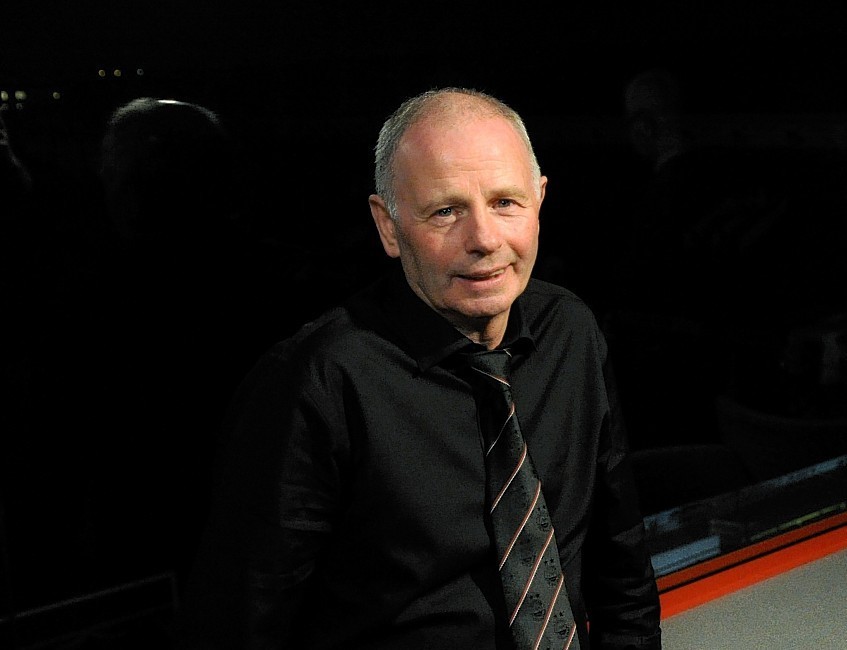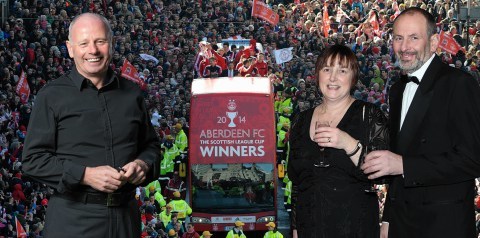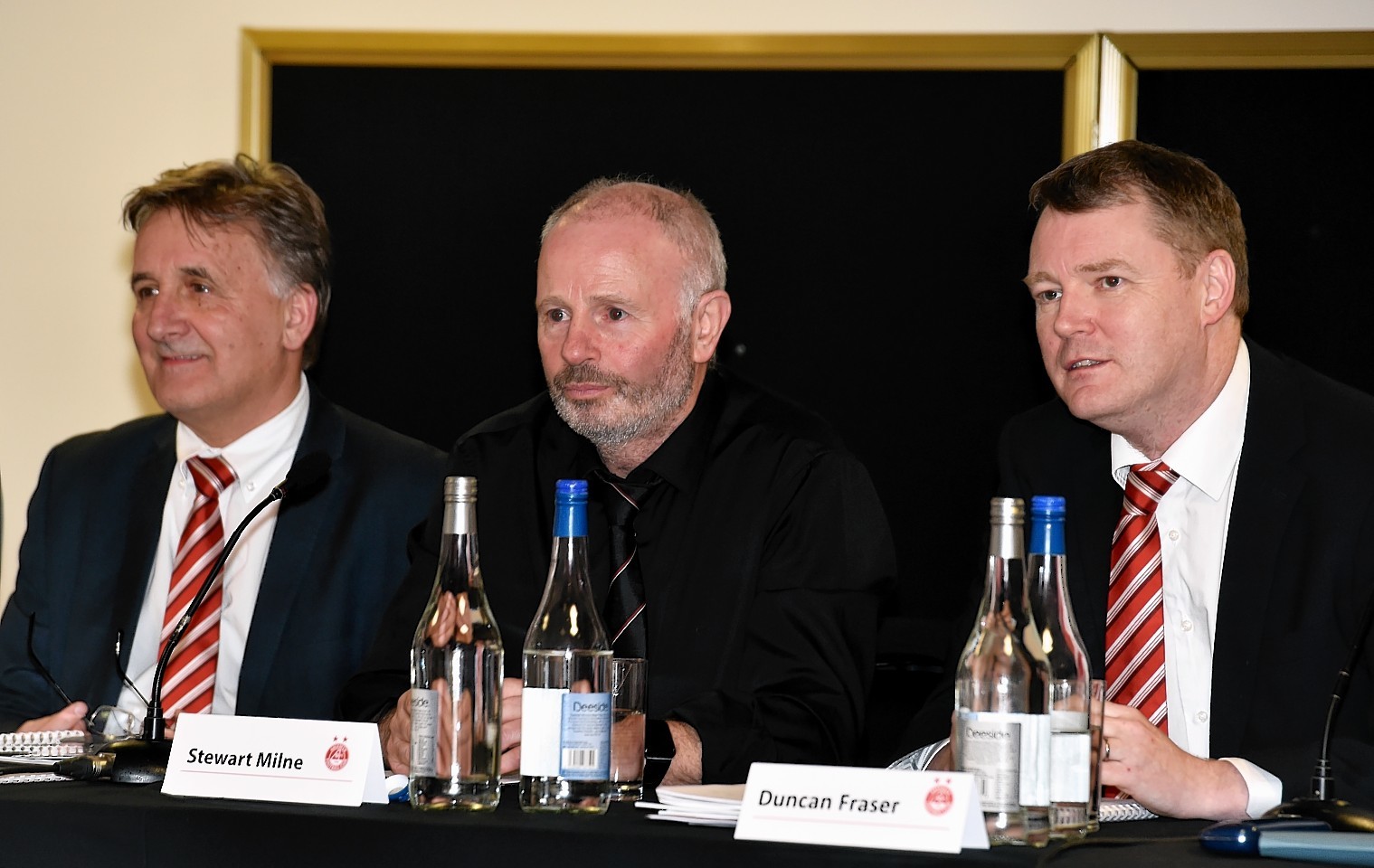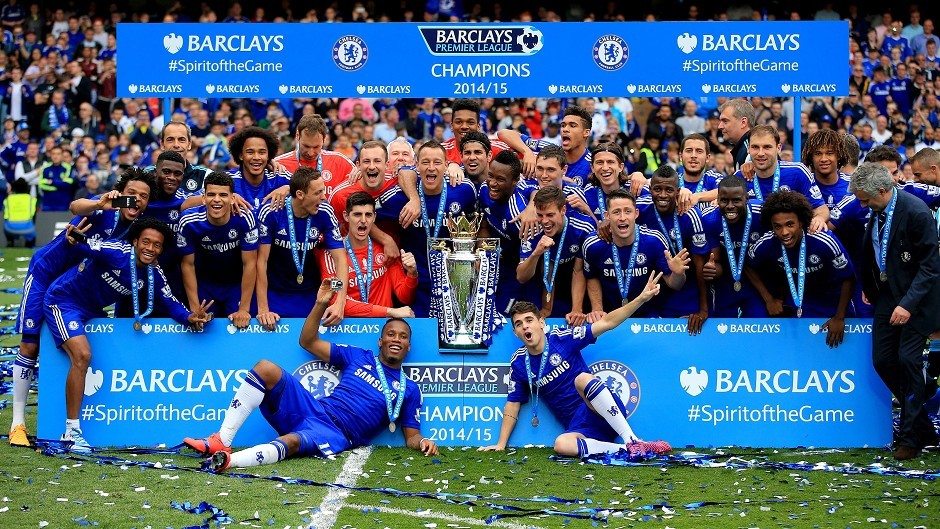Scottish football must be open to radical change in order to compete with the rest of Europe.
The Dons are in as stable a financial position as they have been since Stewart Milne became chairman in 1998.
The club’s debt of £14.49million was eliminated last year, thanks in large part to the investment of Willie Donald and wife Elaine, who own the Stonehaven-based engineering company WM Donald.
A record turnover of more than £13million was achieved last season with the club’s second-place finish and Europa League run helping create an operating profit of £509,000.
But Aberdeen’s success in balancing the books does not hide the fact Scottish football has shrunk in stature.
The national game’s modest television deals are dwarfed by the colossal figures agreed to broadcast matches south of the border and Milne believes the SPFL must adapt in order to prosper.
The recently-revamped League Cup, which offered a hint of summer football, group stages and bonus points for penalty shootout wins will bring a much-needed £8million investment from BT Sport.
And Milne believes Scottish football must rise to the challenge of creating a more entertaining and commercially viable product.
He said: “The one thing we need to be able to achieve in the next five years is to bring a lot more money into Scottish football than what is currently coming in.
“If there is going to be some radical thinking and changes in order to do that then we have got to be prepared to look at all the options.
“I don’t think we should be charging down any particular route at this point in time unless we are convinced it is going to enable us to bring a lot more investment into Scottish football.
“Look at what is happening in English football next year. They will have £1.7billion coming into the game for a season, whereas we are sitting around £20million in total.
“That is the scale of the challenge.
“We have got to find ways of getting that £20million figure substantially increased in the next five or six years.”
Scottish football has witnessed its most turbulent period in recent years with a financially-stricken Rangers demoted to the bottom tier and two of the country’s biggest clubs, Hearts and Hibernian, relegated from the top flight.
The knock-on effect to the rest of Scotland’s clubs has been obvious, but Milne believes the game is through its bleak winter and finally inching towards stability.
He said: “Scottish football was absolutely rock bottom four or five years ago.
“A big percentage of the clubs in the Premier League were carrying substantial debt and we were operating in a pretty tough economic environment.
“But we have come through that.
“The clubs have been able to offload their debt one way or another and strengthen their balance sheets.
“We have delivered the first stage of reconstruction in Scottish football.
“The announcement of the reconstruction of the League Cup is another step in the right direction and there is work being done on the other two cup competitions.
“One of the things we probably haven’t been good at in Scottish football is looking at things objectively enough and having the courage to step back and give it a fresh look.
“I think that is coming into the game more. I do genuinely believe there is the opportunity over the next five to eight years to start making real strides.”
While it is natural for Scottish football to cast an envious glance at the riches on offer south of the border, Milne warned the SPFL must focus on finding its place will allow the national game to thrive.
He said: “That is the reality of where we are.
“We have got to be able to shape something that will make somebody be prepared to put substantially greater value on the table than we are currently getting.
“That means minds have got to be opened up.
“We have got to be looking afresh at some radical changes to come into the game.
“It is absolutely vital that we are able to bring a lot more money into Scottish football than what is currently coming in.”
Milne believes that only by securing greater investment in the game will the country’s leading clubs start to flourish in European football.
He added: “Aberdeen is probably similar to most of the larger clubs in Scotland – we want to be finishing every season in the top three and we want to be in European competition every year. We want to be in the latter stages of the cups and we would love to see the club make real progress in Europe.
“I think everyone recognises there has been a steady decline in Scottish football over the last five or six years in our position within Europe.
“We have fallen back a bit again this year. It needs the likes of Celtic, Aberdeen, Rangers when they are back, Hearts, Hibs, Dundee United and St Johnstone all trying to establish themselves in the mix for European football.”



